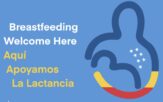In August, Breastfeed Durham partnered with Piedmont AHEC to host a powerful session in our First Food Equity Series—this one centered on the deep connection between perinatal mood support and lactation. The conversation, led by Bernadette Greene, Executive Director of Breastfeed Durham, and Kimberly D. Harper, RN, MPH of UNC’s Collaborative for Maternal and Infant Health, brought together research, lived experience, and community wisdom.
Why Mental Health and Lactation Belong Together
The postpartum journey is never just about feeding. It touches every part of life—healing, sleep, identity, relationships, and mental health. Harper reminded us that while lactation can biologically lower stress hormones and support bonding, the emotional landscape is complex. Anxiety, depression, or trauma can shape the feeding journey just as much as latch or supply issues.
In North Carolina, the urgency is clear: 42% of pregnancy-related deaths are linked to mental health conditions, making them the leading cause of maternal death in our state. Many of these deaths are preventable. Naming these realities—and equipping providers and families with tools—can truly save lives.
Bernadette’s Story: From Teen Mom to Community Advocate
Bernadette spoke candidly about her own experiences with perinatal depression and anxiety across five pregnancies. As a teen mom, she leaned on a neighborhood support program that not only connected her to medical care but also taught her how to breastfeed. “It was the program that taught me about skin-to-skin, about latch,” she shared. Without support, she admitted, “you will be depressed, no matter your age”.
Her honesty illustrated the importance of early screening, prenatal education, and building a village—not just for new parents but for grandparents and extended families as well. Bernadette also spoke as an advocate for her adult daughter, who endured medical trauma and ongoing PTSD after a pregnancy loss. That story was a sober reminder of how trauma can ripple across generations and how critical it is to have advocates in the room.
Tools, Resources, and Red Flags
Kimberly walked participants through the spectrum of perinatal mood and anxiety disorders (PMADs)—from anxiety and OCD to PTSD and postpartum psychosis. She emphasized the need for:
- Early screening with tools like the Edinburgh Scale or PHQ-9.
- Anticipatory guidance so families know what’s normal, what’s not, and when to seek help.
- Community-based supports, from doulas and La Leche League to NC Matters and the National Maternal Mental Health Hotline.
Bernadette added a community health worker’s perspective: Durham parents often need more than therapy or a hotline number. Sometimes what helps most is a ride to an appointment, a bag of diapers, or someone who will simply sit and listen.
Caring for Ourselves While Caring for Others
The session also acknowledged the emotional toll on those who provide care. Harper highlighted the risks of burnout and “fake self-care”—the quick fixes that don’t address deeper needs for rest and restoration. Bernadette shared her own strategies: time with family, sitting in the sun, gospel music, and learning to say no. “We need to put self-care back into our vocabulary,” she said.
Boots on the Ground: What Community Leadership Looks Like
Fittingly, during Black Breastfeeding Week, the theme of “boots on the ground” leadership came through loud and clear. For Bernadette, it means walking into barbershops, churches, and daycares—meeting people where they are and building trust through presence. For Kimberly, it means connecting research and policy to the lived realities of families across North Carolina.
As Love Anderson shared during the session: “The secret to our success isn’t just in the reports—it’s in the everyday acts: holding babies, bringing food, connecting people to resources. That’s what changes lives.”
What Comes Next
This was one session in a year-long First Food Equity Series. Together, we’re building a Durham where breastfeeding and mental health support go hand-in-hand, rooted in community leadership and sustained by our collective village.
If you couldn’t attend, you can find recordings on the Breastfeed Durham YouTube (going live soon) page and explore the resources shared during the session.
And if you’re moved by this work, consider becoming a monthly sustainer. Much of Breastfeed Durham’s outreach—whether it’s distributing diapers, supporting peer lactation spaces, or showing up as boots on the ground—is funded not by government contracts but by donors who believe in healthier families.
